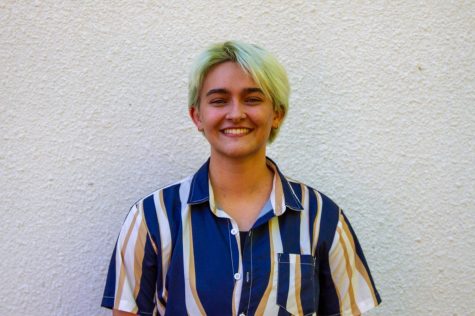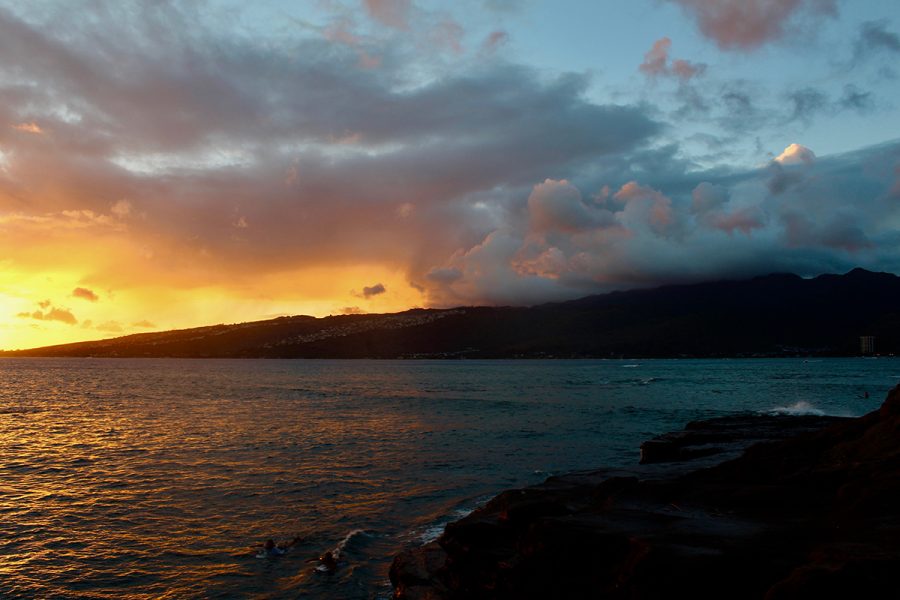City council grants funding to Renewable Energy Action Plan
Goal for a 100 percent, zero emission Eau Claire by 2050
Photo by Maggie Cipriano
A total of $180,000 has been granted to the Renewable Energy Action Plan in an effort make Eau Claire a more sustainable place.
The Eau Claire City Council approved a grant of $180,000 to be used by the Renewable Energy Action Plan to create a more sustainable Eau Claire.
The plan studies how Eau Claire can transition to renewable energy, with a goal of reaching zero emissions by 2050.
Jeremy Gragert, a city council member, explained that while there has always been talk about pushing for renewable energy in Eau Claire, it wasn’t until last year — when Donald Trump announced that the United States would pull out of the Paris Climate Accord — that the effort gained momentum.
“We really need to step up as a community, because we don’t have leadership on the national level anymore,” Gragert said. “In fact, we’re kind of going backward. We also don’t have leadership on the state level, although, this election last November is hopefully going to change that from the governor’s standpoint.”
Gragert explained how, at the time, as a citizen, he had asked the city council to step up more on the city level. Acting President Andrew Werthmann and Councilwoman Kate Beaton were two of the council members who pushed to pass a resolution saying the council wanted to do more on the local level.
The city applied to the Public Service Commission in the state after making a case to justify receiving the funding. Once the city has gained the grant money next year, it will begin the work necessary to achieve the renewable energy goal.
To make sure Eau Claire remains functional and achieves zero emission, the city council needs the community to come forth. Gragert explained that it takes everyone — from students and staff to people not associated with the university and industries — to get the plan completed.
“We need to do it together and we don’t want to leave people behind,” Gragert said. “We don’t want to create inequities in society that are already too apparent and challenging for people.”
One of the biggest challenges Gragert anticipates for implementing the plan to Eau Claire lies within transportation. Switching cars from internal combustion engines to electric is expensive and relies on behavior change from the community as well.
Gragert said the biggest anticipated challenge is choosing between retrofitting buildings, or building new ones to be more energy efficient. As of now, most buildings use natural gas. Buildings built over the past hundred years weren’t built for energy efficiency.
“There’s a lot of big political, corporate and moneyed interest in all of this that want things to be the same as they’ve been for the past 100 years,” Gragert said. “So it’s up to us, on the local level, to fight back.”
“As a young person, I think climate change is real, and it has been proven to be real, no matter what any politician says,” Haadia Malik, a second-year marketing student, said. “When I think about my future children growing up in a world where there’s constantly natural disasters happening all the time, I want to solve this problem.”
Renewable energy, Gragert explained, is actually cheaper than the system the country uses now. Once the energy source is built, it produces its own energy, and no longer requires a big company to be involved in the process.
“Climate change affects the environment and human health in drastic ways,” said Sidney Stull, a first-year nursing student. “With the grant from the city towards climate change action, Eau Claire can become the clean city the local government wishes.”
Spierings can be reached at [email protected].

Timothy Spierings is a fourth-year Spanish and journalism student. This is their eighth semester on The Spectator staff. They enjoy trying all types of new foods and listening to new music artists and are currently trying to learn the bass guitar.











